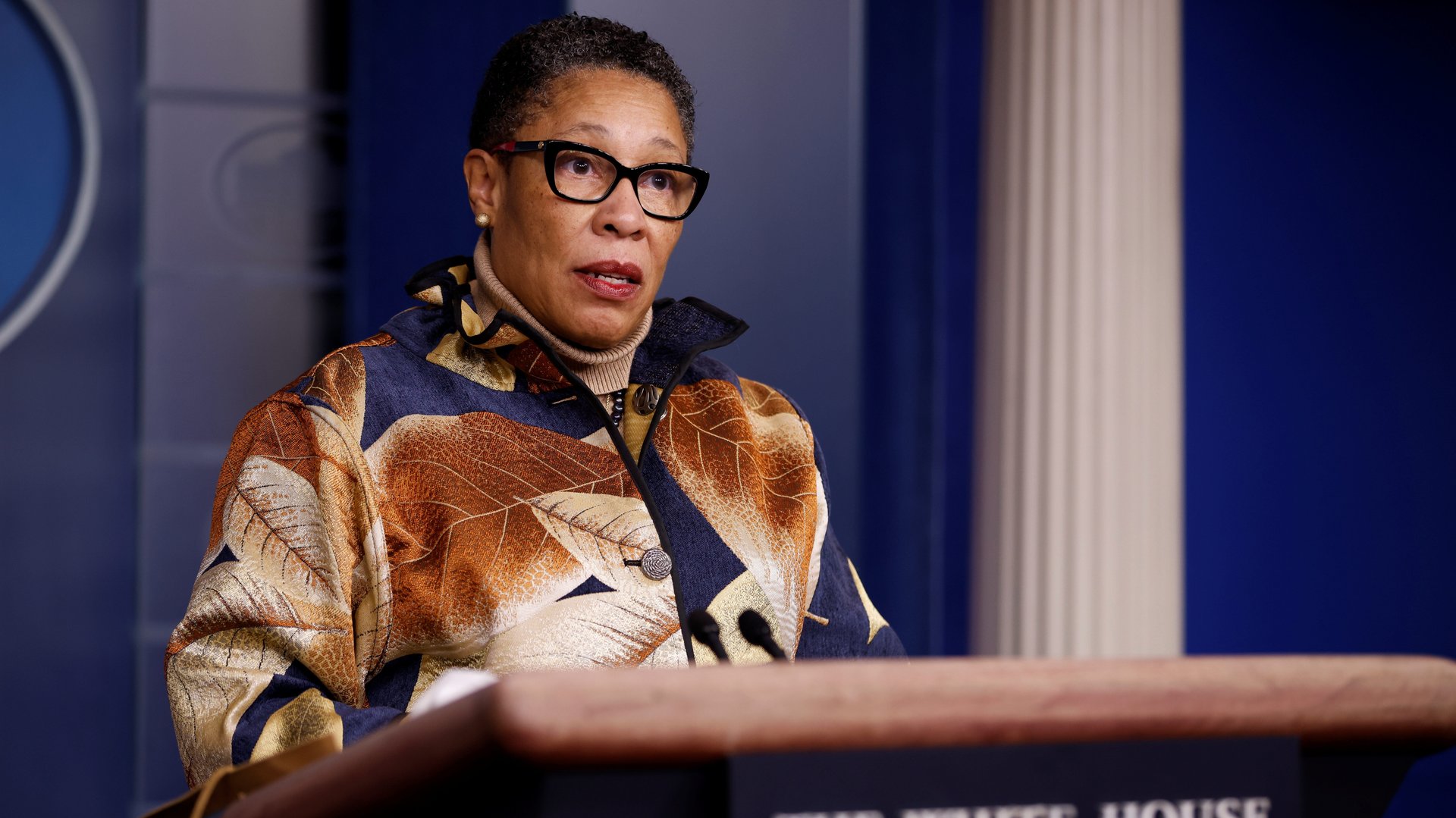The US’s top housing authority just declared housing a human right
For years, America’s housing advocates have sought to make housing a right as central to America’s Bill of Rights as life, liberty, and the pursuit of happiness.


For years, America’s housing advocates have sought to make housing a right as central to America’s Bill of Rights as life, liberty, and the pursuit of happiness.
Until recently, no leader of the US Department of Housing and Urban Development (HUD) has committed to such a vision. But on Tues. March 22, secretary Marcia Fudge became the first sitting US secretary of Housing and Urban Development to declare housing a human right, even if there is not yet any law to back it up.
“If we are to fully achieve justice in housing, we must fully accept what that means,” Fudge said in an address to the National Low Income Housing Coalition policy forum, a virtual event about affordable housing. “Justice in housing is everyone realizing the fundamental truth—housing is a human right.”
The comment made waves among policy experts, researchers, and activists who celebrated the move as a turning point in US housing policy. In recent years, the phrase “housing is a human right” has gone from a slogan of the most progressive housing activists to entering mainstream talking points among policymakers. In the 2020 US presidential election, several Democratic candidates, including former housing secretary Julián Castro and then-candidate Kamala Harris, included a right to housing as part of their policy platforms. In July 2021 when Missouri Rep. Cori Bush slept on the steps of the Capitol to protest the end of eviction moratoriums, she held a sign carrying the phrase.
But no presidential administration has openly endorsed the idea of housing as a fundamental right since Franklin Roosevelt included the right to “a decent home” in his Second Bill of Rights in the 1940s.
Eric Tars, legal director at the National Homelessness Law Center, says the announcement brings the US closer to international recognition of housing as a right. “In 2021 we had Biden coming in as the first president since Roosevelt explicitly saying housing should be a right, not a privilege, for every person, but to have the sitting HUD secretary say housing is a human right just gives it an extra boost,” says Tars. “From my perspective as a lawyer, ‘housing is a human right’ is not only a rallying slogan, but also a legal framework that has been developed at the international level, but that the US has been working outside of for the past 70 years.”
In the United Nations Universal Declaration of Human Rights, which the US has ratified, Article 25 states all people are entitled to “a standard of living adequate for the health and well-being of [themselves] and [their] family, including…housing.” While other countries such as Finland and Scotland have guaranteed a right to housing, passing strong affordable housing policies that have reduced homelessness, US law does not yet guarantee this.
In the US, homelessness is at record highs amid soaring home and rent prices. In 2020, at least 326,000 people were in shelters, according to the latest figures from HUD. And as many as 9.7 million Americans are “housing insecure,” meaning they are not current on rent or mortgage payments and have little confidence in their ability to pay on time, according to survey data from the US Census Bureau. The National Low Income Housing Coalition estimates that the US has a shortage of 6.8 million affordable homes accessible to low-income residents across the US.
An unprecedented investment in ending homelessness
The Biden administration has made curbing homelessness a domestic priority by infusing affordable housing with more cash than budgeted for decades. The Build Back Better Act, Biden’s proposed climate and social spending bill, includes roughly $150 billion in spending for affordable housing efforts, the largest investment in US history, according to the administration. But the legislation has a slim chance of getting passed after being rejected in the Senate in late 2021.
The last significant investment in government-owned public housing came in the 1960s with the passage of the Housing and Urban Development Acts of 1965 and 1968 that created the Department of Housing and Urban Development and expanded federal funding for new and existing housing developments. Since then, policymakers have switched to primarily offering vouchers to subsidize low-income rental housing, but these programs have gone underfunded relative to need in the ensuing decades.
Still, HUD has already acted to make the most of federal funds that are already available. In September 2021, it announced an initiative called House America, in which they partner with state, local, and tribal governments to develop specific local plans to house homeless people. The plan was designed to organize the $10 billion in funding set aside for homelessness efforts as part of the American Rescue Plan, emergency pandemic stimulus legislation passed in March of 2021. It’s a significant increase from the roughly $3 billion HUD spends on homelessness efforts in a typical year, so presents a unique opportunity to enact more lasting change.
But any effort to reduce or eradicate US homelessness over the long term will require not only funding, but legislation similar to the Affordable Care Act of 2010 that laid the groundwork to guarantee Americans access to healthcare, challenging the idea that homes are foremost assets whose provision is dictated by the market. Any attempt to enshrine housing as a right would put the onus on government leaders, national, state, and local, to ensure that even in a free housing market, everyone has a roof over their heads.